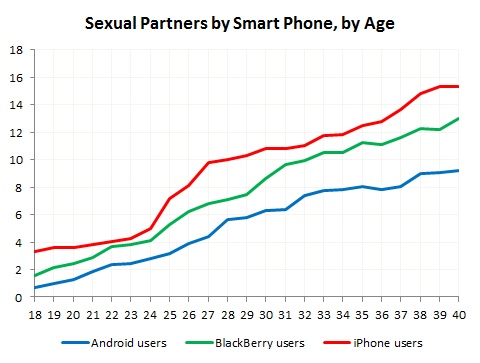As long as we have anything like traditional marriage, I believe that restricting it to heterosexual couples is an exceptionally bad and stupid policy, laced with unnecessary cruelty. It is not, however, an issue that is likely ever to affect my vote, because so much else dwarfs its importance. Legalizing gay marriage would make life substantially better for a few million people of the wealthiest people in the world (i.e. Americans) and is therefore a good thing, but if I’m going to pick my battles, I’ll cast my lot with, say, the tens or hundreds of millions of Third Worlders who are relegated to dire poverty by American trade and immigration restrictions. I’ll take the homophobic free trader over the protectionist crusader for sexual equality every single time.
Archive for the 'Musings' Category
 Yesterday’s nightmare scenarios triggered some good discussion, so let me throw out another one, which I think will help to isolate some of the issues that came up yesterday. Sometime next week I’ll try to summarize the best of the comments and ponder what we’ve learned.
Yesterday’s nightmare scenarios triggered some good discussion, so let me throw out another one, which I think will help to isolate some of the issues that came up yesterday. Sometime next week I’ll try to summarize the best of the comments and ponder what we’ve learned.
|
In front of you are two childless married couples. For some reason, it’s imperative that you kill two of the four people. Your choices are: A. Kill one randomly chosen member from each couple. All four people agree that if they die, they want to be well remembered. Therefore all four ask you, please, to choose A so that anyone who dies will be remembered by a loving spouse. If you care about the four people in front of you, what should you do? |
Argument 1. For goodness’s sake, they’ve told you what to do. If you care about them, of course you should respect their wishes. Choose A.
Argument 2.Once the killings are over, Option A leaves two grieving spouses, whereas Option B leaves one relieved couple. Surely two dead plus two happy is better than two dead plus two sad. Choose B.
Here’s a question to ponder:
|
Question 1: If forced to choose, which of these nightmare scenarios would you prefer?
Scenario A: An evil alien flips a coin. If it comes up heads, he destroys all human life; otherwise he goes home. Scenario B: The same evil alien flips 7 billion coins, one for each person on earth. He destroys anyone whose coin comes up heads. |
I’ll tell you in a minute why I ask, but first let’s consider arguments in each direction:
Argument 1. In scenario A, I have a 50-50 chance of death, and a 50-50 chance of continuing my current life. In scenario B, I have a 50-50 chance of death, and a 50-50 chance of a life in which half my loved ones are gone. Surely I should take A.
Argument 2. In scenario A, there’s a 50-50 chance that all future generations will be destroyed-in-advance. In scenario B, even if the coin comes up heads, people will continue to be born, and in the very long run, the evil alien will be a forgotten memory. Surely I should take B.
Your answer to this question, I think, is likely to reveal a lot about how much you think we owe to future generations. If you think we owe them nothing, then Argument 1 is definitive. If you think we owe them the same respect we owe our contemporaries, then Argument 2 is definitive. If you think we owe them something in between, you might waver.
Now that sort of question might strike you as nothing more than Sunday-afternoon dorm room fare, but I don’t believe it can be dismissed so easily. It is pretty much impossible to take a coherent stand on issues ranging from Social Security reform to environmental conservation without first deciding how much we are obligated to care about future generations. A lot of people seem to think those issues are worth debating, which pretty much forces us to face up to the fundamental issues.
On the other hand, come to think of it, I suppose a person might prefer Scenario B to Scenario A for reasons that have nothing to do with future generations — namely the desire to be remembered. Is that something we care about? To focus on that issue, here’s another question:
|
Question 2: Suppose you’re happily married. If forced to choose, which of these nightmare scenarios would you prefer?
Scenario A: An evil alien flips a coin. If it comes up heads, he kills you and your spouse; otherwise he goes home. Scenario B: The same evil alien flips a coin. If it comes up heads, he kills just you; if it comes up tails, he kills just your spouse. |
Here again we have:
Argument 1. In scenario A, I have a 50-50 chance of death, and a 50-50 chance of continuing my current life. In scenario B, I have a 50-50 chance of death, and a 50-50 chance of a life in which my beloved spouse is gone. Surely I should take A.
Argument 2. In scenario A, there’s a 50-50 chance that my spouse and I will both be dead and unremembered (or at least unremembered by anyone who knows us as intimately as we know each other). In scenario B, however, we each get to live on, at least in the memory of a loved one. Surely I should take B.
Your answer to Question 2 will tell me something about how much being remembered matters to you, which will help me interpret your answer to Question 1.
The original version of this post included several more followup questions. But I suspect these two are grist enough for a day or two of discussions. I’ll post the followups after those responses start to peter out.
Related post here.
 |
 |
 |
Scientists at CERN have found apparent evidence that neutrinos can travel faster than light.
Suppose that tomorrow historians at Harvard find apparent evidence that the South won the American Civil War — not in some metaphorical “they accomplished their goals” sense, but in the literal sense that it was actually Grant who handed his sword to Lee at Appomatox and not the other way around.
Question: Of which conclusion would you be more skeptical?
Of course your answer might depend on exactly what this new “apparent evidence” consists of. So let me reword: As of this moment, which do you think is more likely — that neutrinos can travel faster than light, or that the South won the Civil War?
 |
 |
Each generation wishes it could go back fifty years and shake some sense into those people who were so bound by unnecessary customs, and so blind to the options they could have chosen and the changes that loomed on the horizon. As I said on Tuesday, this was Edith Wharton’s theme when she wrote in 1920 about the 1870’s, and it’s the theme of Mad Men, written in 2010 about the 1960s.
I invited you on Tuesday to speculate about which of our own quirks will trigger this sort of bittersweet nostalgic frustration among our descendants fifty years from now. There were some great responses in the comments.
Here are some predictions of my own that I think are least plausible — some moreso than others, but I’ll throw them out in no particular order.
When I review the blessings of my extraordinarily blessed life, this one always appears near the top of my list: I am an adult male who has never been to war. I have always assumed — without thinking about it too hard — that in the historical scheme of things, this is a great privilege, and a great rarity.
Am I right about that? Over the course of human history, what is your estimate of the fraction of males who have reached adulthood without participating in a military conflict?
(Obviously, there’s some fuzziness about what counts as military conflict. I’m thinking here not about the occasional street fighter, but about the guy living in mud and getting shot at for weeks at a time — or things equally dangerous/traumatic/uncomfortable.)
1) I just had an extremely pleasant walk around the Beale Street area in Memphis, which strikes me, roughly, as Bourbon Street without the urine. (Also without the trash and the high general level of obnoxiousness — though also of course without the magnificent architecture, etc.) Yes, I realize it’s also a different musical genre (though in both cases it’s a sub-genre of “too loud”). But it’s astonishing to me how clean the streets are here, and how well-behaved the crowds, compared to what I’ve seen in Louisiana. If they can do that here, why can’t they do it there?
2) This weekend marks the anniversary of a world-changing event — an event that might be of particular interest to readers of The Big Questions, both the book and the blog. Who can tell me what event I have in mind? (Hint: It’s an anniversary ending in zero.) I’ll blog the answer on Monday.
3) The discussion of the Allais paradox rages on in comments on multiple posts. For the few of you who have not yet tuned this out, my latest comment is an attempt to cut through the fog and identify the locus of some commenters’ confusion, or disagreement, or both. I think it will very much help focus the discussion if the dissenters could tell us where they stand on these questions. (My answers are all “yes”.)
Is it better to tax consumption or to tax income? Is it better to tax carbon or to mandate fuel efficiency? Is it better to foster global competition or to protect local industries?
Today, I will attack none of these questions. Instead, I will attack the meta-question of how to attack such questions. For economists evaluating alternative policies, the industry standard is the efficiency criterion, also known as the welfare criterion. (I’ll illustrate what that means as I go along.) But now comes Princeton Professor Uwe Reinhardt with a piece in the New York Times that questions the orthodox approach found in virtually all modern textbooks (including one in particular).
Let’s first dispense with the straw man. I’ve never heard of an economist who believes that every efficient policy is good, and I’ve heard of very few who believe that every inefficient policy is bad. It’s true that most economists do seem to believe that any good policy analysis should start by considering efficiency. That doesn’t mean it should end there.
I think economists are right to emphasize efficiency, and I think so for (at least) two reasons. First, emphasizing efficiency forces us to concentrate on the most important problems. Second, emphasizing efficiency forces us to be honest about our goals.
Data from 9,785 users of the dating site OKCupid reveal that iPhone users have 50% to 100% more sex partners than Android users, at every age.
This graph combines men and women, but the same pattern holds for each gender separately.
Explain this to me!
More info here (if you scroll down a couple of screens).
The really big news from Hewlett Packard this week was not the dismissal of CEO James Hurd but the announcement by HP Labs researcher Vinay Deolalikar that he has settled the central question in theoretical computer science.
That central question is called the “P versus NP” problem, and for those who already know what that means, his claim (of course) is that P does not equal NP. For those who don’t already know what that means, “P versus NP” is a problem about the difficulty of solving problems. Here‘s a very rough and imprecise summary of the problem, glossing over every technicality.
Deolalikar’s paper is 102 pages long and less than about 48 hours old, so nobody has yet read it carefully. (This is a preliminary draft and Deolalikar promises a more polished version soon.) The consensus among the experts who have at least skimmed the paper seems to be that it is a) not crazy (which already puts it in the top 1% of papers that have addressed this question), b) teeming with creative ideas that are likely to have broad applications, and c) quite likely wrong.
As far as I’m aware, people are betting on point c) not because of anything they’ve seen in the paper, but because of the notorious difficulty of the problem.
And when I say betting, I really mean betting. Scott Aaronson, whose judgment on this kind of thing I’d trust as much as anyone’s, has publicly declared his intention to send Deolalikar a check for $200,000 if this paper turns out to be correct. Says Aaronson: “I’m dead serious—and I can afford it about as well as you’d think I can.” His purpose in making this offer?
 How important is it to hire the best person for the job?
How important is it to hire the best person for the job?
Here’s a data point: On Friday, Hewlett Packard’s CEO Mark Hurd resigned unexpectedly — and pretty much instantly the value of HP stock dropped by about $10 billion. If we assume Hurd would otherwise have been around for another 10 years or so, that means shareholders think his departure will cost the company about a billion dollars a year. Which, incidentally, makes his $30 million or so in annual compensation look like a hell of a bargain.
Now maybe some part of that $10 billion reflects expected short-term losses due to the turmoil of an unplanned transition. But even if that turmoil were to cost HP a full month of revenue (which seems like a pretty extreme assumption), that’s still less than a billion — leaving over $9 billion to represent the difference between what the market expected from Hurd and what it expects from his successor.
One argument that’s often made against legalized polygamy is that rich old men will marry lots of women, leaving lots of poor young men both single and sexually frustrated—-and that’s bad, because poor young single sexually frustrated men are prone to criminal acts of violence.
Over at Overcoming Bias, Robin Hanson objects that if people really believed this argument, they’d want to criminalize lesbianism and extramarital affairs, both of which also contribute to the problem of men-without-partners.
 A few years back, when Google acquired YouTube, I was heard to remark that the deal seemed kind of…imprudent. Given YouTube’s potential as a lawsuit generator, the best owners might not be the guys with some of the world’s deepest pockets.
A few years back, when Google acquired YouTube, I was heard to remark that the deal seemed kind of…imprudent. Given YouTube’s potential as a lawsuit generator, the best owners might not be the guys with some of the world’s deepest pockets.
A colleague points out that it seems equally odd for a company with pockets the depth of BP’s to be engaged in as risky an activity as deep water oil drilling. Why wasn’t this project sold off to someone with a lot less to lose?
Maybe BP expected to be protected by laws limiting its liability, but surely it was foreseeable that those laws might be circumvented, as it appears they’re about to be. So if that’s part of the answer, it’s only a small part.
Let’s try for a little perspective. The BP oil spill threatens to cause something like $10 billion worth of damage. That’s pretty bad. By contrast, an extra trillion dollars worth of federal spending threatens to cause something like $300 billion worth of deadweight loss (that is, underproduction due to tax avoidance and disincentives to work). That’s 30 times worse. How is it that so much angst about the former seems to be coming from people with a history of shrugging their shoulders at the latter?
Both $10 billion and $300 billion are extremely rough guesses, but the $300 billion figure comes from the widely cited estimates of Harvard’s Martin Feldstein, according to which a one dollar tax increase triggers about 30 cents in deadweight losses. Since a trillion in new spending means a trillion in new taxes (either now or in the future), we get $300 billion in deadweight loss.
Of course $10 billion worth of oil-related damage is still big enough to be worth a goodly dollop of angst. But keep these things in mind:
 The Diagnostic and Statistical Manual, widely known as the bible of psychiatric medicine, is under revision and the American Psychiatric Association is accepting public comment at a new website.
The Diagnostic and Statistical Manual, widely known as the bible of psychiatric medicine, is under revision and the American Psychiatric Association is accepting public comment at a new website.
Medpage Today reports that the revision has already been changed several times in response to these comments. These include several areas within the Sexual and Gender Identities categories, and modifications to the criteria for adjustment disorders and eating disorders.
By contrast, the American Physical Society is not asking the general public to weigh in on the prospects for supersymmetry, nor is the American Economic Association surveying the general public on the properties of dynamic stochastic general equilibria. So much for any pretense that psychiatry is a science.
Hat tip to Tom Amoroso, who called this to my attention though he might not endorse this commentary.
Here are some thoughts on last week’s absent-minded driver problem.
First a recap of the problem, with a bit more detail than last week:
Each day, Albert leaves his office (at the bottom of the map), gets on the Main Highway and attempts to drive home to his house on Second Street. If he turns too soon (onto First Street) or if he overshoots (going all the way to the north end of the Main Highway), he is mauled by dinosaurs.

Obviously, Albert’s best strategy is to go straight at the first intersection and turn right at the second. Unfortunately, both intersections look identical. Doubly unfortunately, Albert can never remember whether he’s already passed the first intersection.
One final word on this 46 year old topic:
Monday I insisted that all reasonable people should be at least mildly disturbed by the diminution of property rights implicit in a ban on whites-only lunch counters.
Tuesday I cited an excellent comment from Jonathan Pryor suggesting that a whites-only lunch counter is itself an indirect assault on property rights insofar as the owners expect taxpayers to foot the bill for enforcement of the whites-only policy (say, by calling the police when unwanted visitors show up).
There are circumstances in which I think Pryor’s argument clearly applies. I cited the case of the man who keeps a barrel of Hershey bars on his front lawn and expects the police to stop children from filching them. Surely this man is imposing a burden on the community over and above the assertion of his own property rights. But I also gave several other examples that gave me pause about the applicability to lunch counters.
This in turn brought forth an insightful comment from Ken B, who points out that the Civil Rights Act itself called for a lot of taxpayer-financed enforcement. The act was passed, blacks sat down at lunch counters, owners attempt to evict them, the police were called.
I had planned to get back to our friend the absent-minded driver today, but yesterday’s post on Rand Paul garnered (at least) one comment so good that it deserves to be highlighted.
I said yesterday that the 1964 Civil Rights Law (forbidding racial discrimination in places of public accommodation) infringes on property rights and that all reasonable people ought to be disturbed by that, even if their ultimate judgment is that the benefits of the law outweigh its costs.
Our commenter Jonathan Pryor responded, in effect, as follows (I am paraphrasing):
When you open a restaurant and announce that you won’t serve blacks, you’re not just announcing that you won’t serve blacks. Instead, you’re implicitly announcing that whenever a black person comes in and asks for service, you’re going to call the police and ask the taxpayers to subsidize the cost of your taste for discrimination. You have no property right to those taxpayer dollars.
My first reaction was: This is an excellent point, which I haven’t seen raised before. For the most part, that’s still my reaction. Still, this argument cannot be definitive as a matter of principle, because the same argument applies in many cases where we clearly reject its conclusion. After all, when you open a restaurant, you’re implicitly announcing that whenever a naked person asks for service you’re going to call the police and ask the taxpayers to cover the cost of removal. For that matter, you’re going to call the police every time you get robbed. But we don’t conclude that it should always be illegal to open a restaurant.
 Do you remember Mister Bunny Rabbit?. He was a friend of Captain Kangaroo. One day long ago, when I still measured my age in single digits, Mister Bunny Rabbit announced that he owned a book containing the answer to every possible question. I was skeptical about that book, and so was the Captain, who scoffed mightily at the notion. By way of a test, he looked up the question “Where is Mister Green Jeans right now?”. The book’s answer was “In the attic”, which the Captain knew (I forget how) could not possibly be right. While the Captain was still gloating, Mister Green Jeans ambled in and mentioned that he’d just come from the attic.
Do you remember Mister Bunny Rabbit?. He was a friend of Captain Kangaroo. One day long ago, when I still measured my age in single digits, Mister Bunny Rabbit announced that he owned a book containing the answer to every possible question. I was skeptical about that book, and so was the Captain, who scoffed mightily at the notion. By way of a test, he looked up the question “Where is Mister Green Jeans right now?”. The book’s answer was “In the attic”, which the Captain knew (I forget how) could not possibly be right. While the Captain was still gloating, Mister Green Jeans ambled in and mentioned that he’d just come from the attic.
The Captain was amazed, and so was I. Long into adulthood, I pondered how that book could possibly have known where Mister Green Jeans was. The best answer I ever got was from the journalist Chris Suellentrop, who speculated that it was probably one of those quantum mechanical things where the act of asking the question caused both the book and Mister Green Jeans to settle down from a cloud of possibilities into mutually compatible states. Others—not so very long ago—speculated that perhaps the book was controlled by a satellite operating a surveillance camera.
Nowadays, of course, we can all carry that book in our pockets. I wonder if today’s children would find anything particularly magical about a reference work that has the answers to pretty much everything, and updates them on the fly.
In the course of planning a rather significant event for the coming weekend, I was forced, for the first time in my life, to confront the following conundrum:
- Which is sunnier — “partly sunny” or “partly cloudy”?
My faith in the power of pure reason was severely shaken when I realized I could construct equally plausible arguments in either direction. So, with reluctance, I abandoned theory and turned to evidence, in the form of the logos employed by two of the more popular weather forecasting sites:
|
Weather Underground |
Accuweather | |
| Partly Sunny |  |
 |
| Partly Cloudy |  |
 |
Weather Underground takes an unambiguous stand: partly cloudy is definitely sunnier than partly sunny. Accuweather is a little, umm, hazier on the issue; apparently at Accuweather, partly cloudy means something like “somewhat wispier clouds, covering more of the central portion of the sun but a bit less of the edges, than partly sunny”. Overall, though, it appears that at Accuweather, partly sunny is sunnier than partly cloudy.
 First, kudos to both Bennett Haselton and Xan, each of whom nailed yesterday’s puzzle in comments. Bennett’s answer has the advantage of requiring no knowledge of algebra; Xan’s has the advantage of giving a (much) more precise bound on how long it takes for history to repeat itself.
First, kudos to both Bennett Haselton and Xan, each of whom nailed yesterday’s puzzle in comments. Bennett’s answer has the advantage of requiring no knowledge of algebra; Xan’s has the advantage of giving a (much) more precise bound on how long it takes for history to repeat itself.
Now on to something completely different:
During a belated conversation about health care policy, a colleague remarked that “of course, nobody would want to live in a world where rich people and poor people got the same kind of health care”. The economists around the table all nodded in agreement and moved on to matters that were actually controversial.
It occurs to me that had there been a few non-economists at the table, someone might have objected to my colleague’s matter-of-fact (and surely accurate) observation. And it occurs to me also that maybe there’s a general lesson here about how economists communicate—or fail to communicate—with the world at large.
 Well, “praise” might not be exactly the right word, but I do want to argue that by and large, genocide is the least objectionable form of mass murder—for the simple reason that, when successful, it leaves no mourners. Other things being equal, meaningless deaths are best clustered among people who care about each other. I’m pretty sure I prefer the home invader who wipes out a family of five over the serial killer who takes four lives at random, leaving four devastated spouses and twelve grieving children. And likewise I prefer the mass murderer who wipes out an extended “family” of five million to the one who kills, say, four and a half million at random. Taking the death and destruction as given, sowing less misery earns you a little slack.
Well, “praise” might not be exactly the right word, but I do want to argue that by and large, genocide is the least objectionable form of mass murder—for the simple reason that, when successful, it leaves no mourners. Other things being equal, meaningless deaths are best clustered among people who care about each other. I’m pretty sure I prefer the home invader who wipes out a family of five over the serial killer who takes four lives at random, leaving four devastated spouses and twelve grieving children. And likewise I prefer the mass murderer who wipes out an extended “family” of five million to the one who kills, say, four and a half million at random. Taking the death and destruction as given, sowing less misery earns you a little slack.




